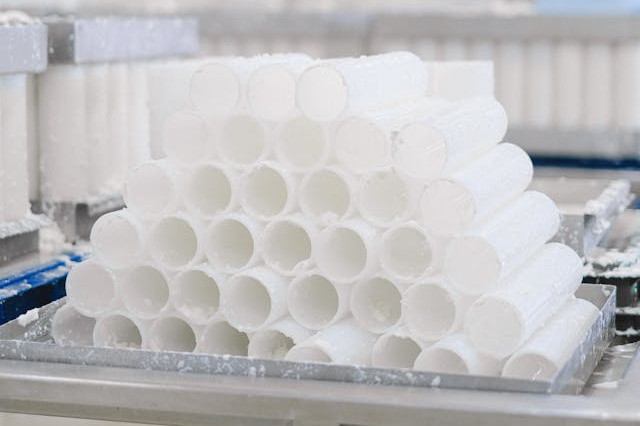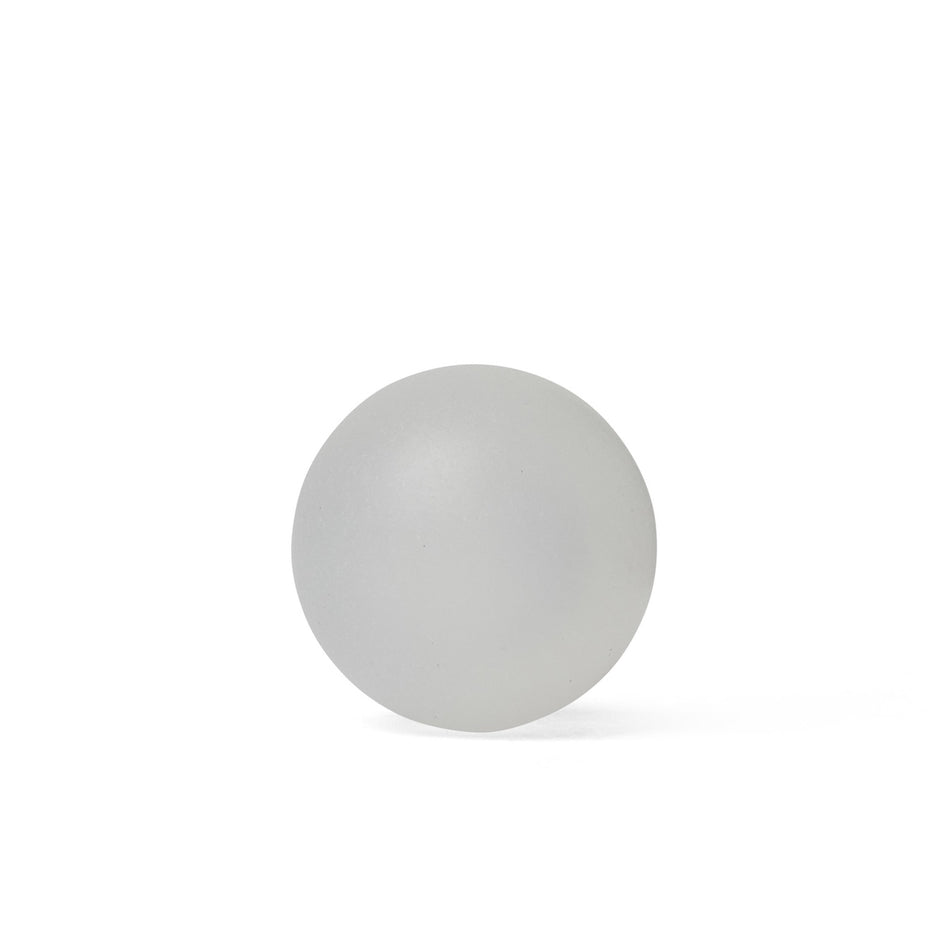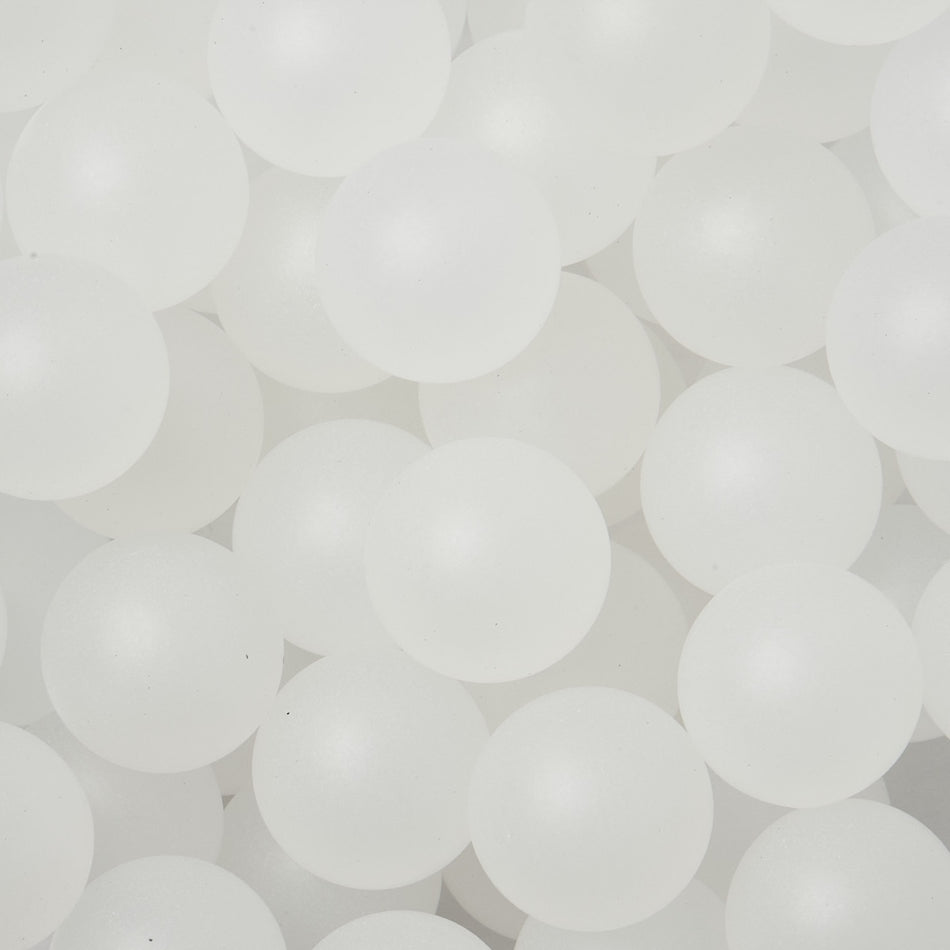Che cos'è il polietilene (PE)?
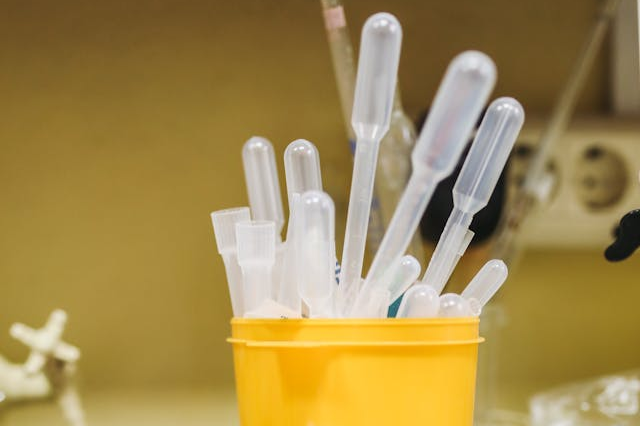
Polyethylene (PE) is a versatile polymer derived from the polymerization of ethylene, known for its wide range of applications. It is one of the most common types of plastics, available in different forms such as low-density polyethylene (LDPE) and high-density polyethylene (HDPE), each offering different properties. PE is characterized by its excellent chemical resistance, flexibility, durability, moisture resistance, and low weight. It is also relatively low-cost and non-conductive, which adds to its versatility.
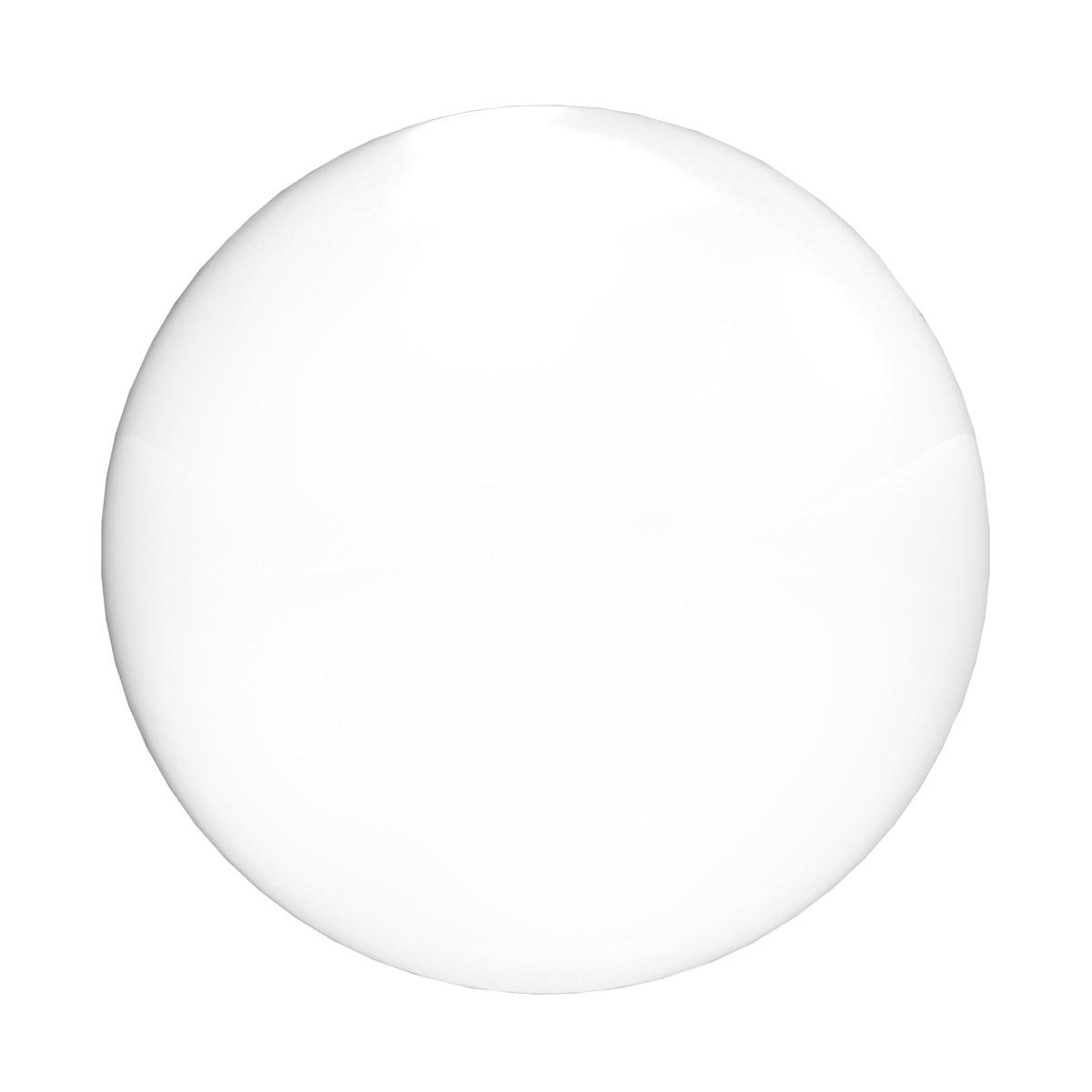
Polyethylene fasteners and precision balls
As a material for fasteners, PE is well-suited for specific applications, particularly in environments where traditional metal fasteners might corrode or degrade due to chemical exposure or moisture. Its resistance to chemicals and corrosion makes it ideal for marine, chemical, or outdoor environments, while its non-conductive nature benefits electronic applications. However, due to its lower strength and rigidity compared to metal fasteners, PE fasteners are typically limited to light-duty applications.
PE is also suitable for precision balls in applications requiring lightweight, non-corrosive, and low-friction components. PE precision balls can be used in bearings or valves where chemical resistance and low moisture absorption are critical. While they do not offer the high strength of metal or ceramic balls, their resistance to wear and chemicals, along with their smooth surface, makes them an excellent choice for applications requiring lightweight, non-metallic solutions.
PE Precision Balls
High Performance Polymer offer a range of PE precision balls. Find out more by selecting a product below:
Key Benefits
-
Chemical Resistance
PE's ability to resist degradation from exposure to a wide range of chemicals, including acids, bases, and solvents, is crucial in applications where fasteners and precision balls are exposed to aggressive chemical environments. For example, in chemical processing equipment or laboratory settings, PE fasteners and precision balls can maintain their integrity and performance even when exposed to corrosive substances. This ensures long-term reliability in environments where metal fasteners might corrode or degrade, providing a cost-effective and durable alternative.
-
Durability and Impact Resistance
Precision balls and fasteners made from PE benefit from the material's high impact resistance. This makes them suitable for applications that involve mechanical stress, vibrations, or repeated use, such as in machinery, automotive components, or industrial equipment. PE fasteners can absorb impact and endure wear without breaking or cracking, while precision balls maintain their shape and function even under high-stress conditions. This durability ensures longevity, reducing the need for frequent replacement and lowering maintenance costs.
-
Moisture and Corrosion Resistance
PE’s non-corrosive properties and resistance to moisture absorption make it an ideal material for precision balls and fasteners used in wet or humid environments. In applications such as marine equipment, plumbing, or outdoor infrastructure, PE components resist rust and corrosion, which is a significant advantage over metal fasteners. PE precision balls are also widely used in valve systems and bearings where exposure to water or other fluids would cause metal components to degrade. Their moisture resistance ensures smooth operation and long service life in environments where metal would fail.
-
Lightweight and Non-Conductive
PE is a lightweight material, making it easier to handle, transport, and install compared to heavier materials like metal. This is especially beneficial in industries such as aerospace, automotive, or electronics, where reducing weight is critical for performance and fuel efficiency. In addition, PE is non-conductive, making it a valuable choice for applications where electrical insulation is required. Fasteners and precision balls made from PE are often used in electronic components or systems where preventing electrical conductivity is crucial to avoid short circuits or interference, offering both safety and functionality in sensitive applications.
Summarised Properties of Polyethylene (PE)
-
Water Absorption Rate (at 24 hours):
- LDPE and HDPE typically absorb less than 0.01% of water by weight
Resistance to Chemical Corrosion:
PE can resist many harsh chemicals, such as:
- Acids: Up to 60% sulfuric acid and 30% nitric acid.
- Alkalis: Solutions like sodium hydroxide (caustic soda).
- Salts: Strong resistance to saltwater, making PE ideal for marine environments.
Tensile Strength:
- LDPE: 8–12 MPa
- HDPE: 20–38 MPa
-
- Heat operation (105°C)
- High tensile strength (20Mpa)
- Ultra low weight
- UL94 HB
- Abrasion resistance
- Hydrolysis resistance
- Non-Magnetic
- Low thermal conductivity
- Non-Corrosive
- Food safe (FSA/FDA Approved)
- Low friction coefficient
- Cost effective
